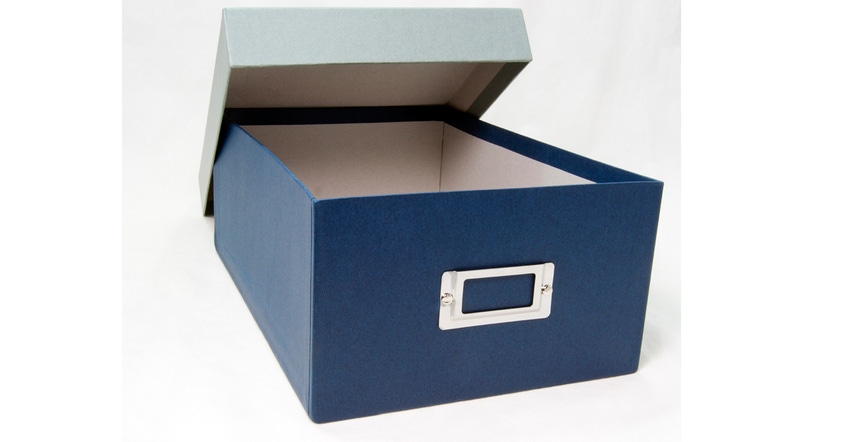April 14, 2017

I often receive questions from clients about how to best keep and maintain business and tax records, and about how long records should be retained. Organizing, maintaining and keeping records up to date is time-consuming, challenging and often overwhelming.
Recordkeeping
Business and financial records must be maintained and retained for federal and state law compliance, historical documentation of events, financial and tax recordkeeping, and possibly nostalgic reasons. Accurate and detailed herd, production and financial records are critical to monitor the progress of your farm business so you can make informed financial and human resource decisions. Your financial records are used to prepare financial statements that inform all involved family members and your lenders of your farm’s financial condition and are especially important when securing needed financing.
Good records are also essential in business and tax planning, and for tax returns that accurately report the farm’s income, deductible expenses and depreciation. Detailed financial records of capital purchases and depreciation track your remaining tax basis in that property until it is sold or traded. Good records assure an accurate tax return and reduce the risk of an IRS or Wisconsin Department of Revenue audit — and if you receive an audit, ease your fear.
Records can be maintained in manual journals and ledgers or electronically through the use of computerized accounting systems. Supporting documentation needs to be retained to satisfy your “burden of proof” as a taxpayer. All original source documents (i.e., receipts, deposit information, invoices, bills, canceled checks and credit card slips), as well as all tax-reporting and informational forms associated with your business, personal and employment tax requirements need to be retained, in paper form or electronically, as your supporting documentation.
The length of time records should to be retained depends on the type of record involved. I recommend that income tax returns, including all records and supporting documentation used to prepare them, should be kept at least seven years from the date they were filed. If you are ever audited, the IRS or WDR can go back three years, but they could also request records for another four years before the oldest year. Of course, there is no statute of limitation for a failure to report income or in the event of fraudulent reporting on a tax return.
Employment records, including all payroll files and earnings histories, must be retained for four years after the tax becomes due or is paid, whichever is later. Thus, the standard recommendation would be to retain all employment records for four years after the filing is completed for the fourth quarter of any year.
Property records should be retained for seven years after the year in which you dispose of the property.
Special conditions exist for nontaxable exchanges and basis adjustments due to death of a taxpayer. For a nontaxable exchange, you must retain the old and new property records so long as you own the replacement property. This could result in many more years being kept if you continually trade in old property for new. In the event of a taxpayer’s death, the basis in property will “step up” or “step down” to the fair market value of the decedent’s interest in the property as of the date of his or her death. When this basis is adjusted, old basis records for the property can be disposed of, and the new basis can be used for depreciation or other tax-reporting purposes.
Of course, there are also nontax reasons to retain various types of business records, such as creditor or insurance requirements. You should verify with your banker or insurance agent as to their specific recordkeeping requirements.
Storing records
To have a well-maintained recordkeeping system, you should review your paper and electronic space limitations. If space is not a problem, I believe it is advantageous to keep more than the required number of years of records. With the electronic storage systems available today, it has become less a decision of shelf and cabinet space and more a question of how to properly use scanners to make legible copies of documents to store on flash drives, external hard drives and in the cloud.
Remember that just like paper documents can be destroyed, so too can electronic records stored on your main computer system be corrupted or lost. You should invest in a quality backup system, and store backup copies at a separate location.
Once you have decided how long to retain records and in what form, it is time to develop a plan to make your recordkeeping system efficient so you can manage your time effectively and not get backlogged with the paperwork part of your business. You should establish an inbox for incoming papers that need to be processed. When going through the inbox, sort papers by type.
The first type is action documents that require you to perform a task, such as bills and timecards. You should establish a certain day and time to go through those action papers — either daily or weekly, depending on your circumstances. The second type is reference documents that do not require any immediate action, such as newspaper or magazine articles. These documents should be periodically reviewed. The third type is archive documents, such as your tax returns, financial records and capital purchase documents.
Most importantly, work with your accountant from time to time to update your recordkeeping system. A good agricultural accountant is your best source for answering farm recordkeeping questions.
Birschbach is a certified public accountant at the ag law firm of Twohig, Rietbrock, Schneider and Halbach S.C. Call Birschbach at 920-849-4999.
About the Author(s)
You May Also Like




